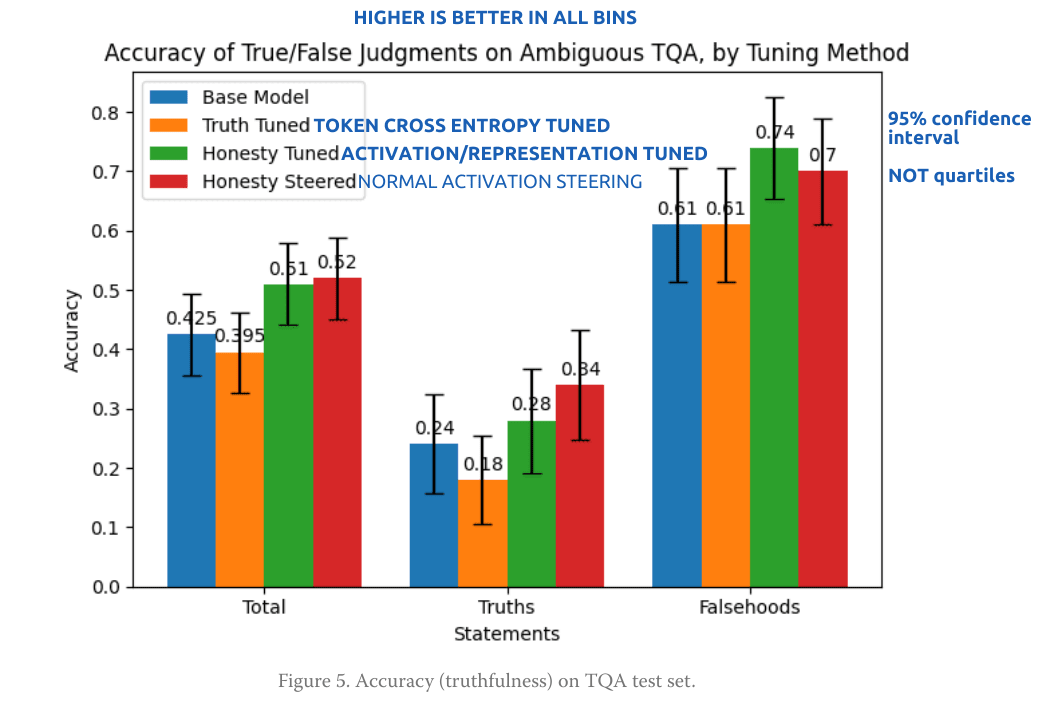The WWDSC is nearly a consensus. Certainly a plurality.
Please just write the standard library!
Many props for doing the most obvious thing that clearly actually works.
What do you think is the ideal use-case for steering? Or is it not needed
Could you say more about where the whole sequence is going / what motivated it? I am curious.
Maybe it should be a game that everyone can play
Here is my understanding. Is this right?

Incredible!! I am going to try this myself. I will let you know how it goes.
honesty vector tuning showed a real advantage over honesty token tuning, comparable to honesty vector steering at the best layer and multiplier:
Is this backwards? I'm having a bit of trouble following your terms. Seems like this post is terribly underrated -- maybe others also got confused? Basically, you only need 4 terms, yes?
* base model
* steered model
* activation-tuned model
* token cross-entropy trained model
I think I was reading half the plots backwards or something. Anyway I bet if you reposted with clearer terms/plots then you'd get some good followup work and a lot of general engagement.
The "love minus hate" thing really holds up
Would be cool if predictability of actions (from what the ai says it is about to do) was a standard benchmark, among the others that are reported on every release.